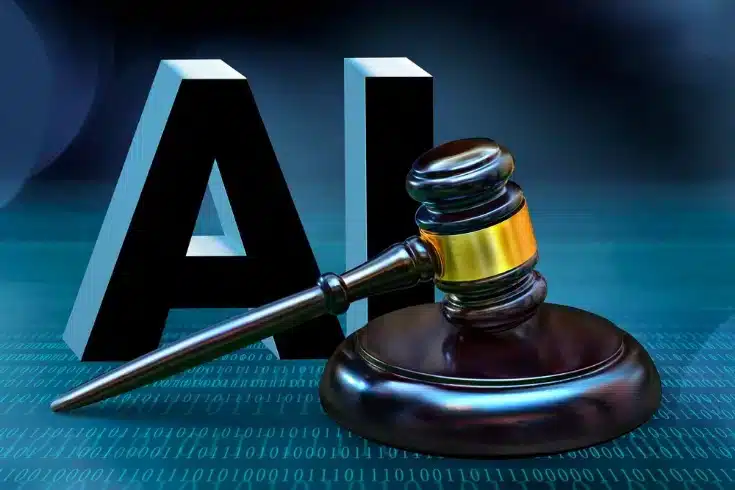What are the Cases Where Tort Liability Became an Issue in System Development?

In the realm of system development, disputes over the location of various rights and obligations are mostly predicated on the existence of a ‘contract’ that was concluded in advance. However, not all legal obligations are based on the existence of a ‘contract’ that was concluded beforehand. Legal liability for wrongful acts is a prime example of this. In this article, we introduce the concept of ‘tort’, which does not rely on a contract as its basis, and explain the relationship between tort law and system development projects.
The Connection Between System Development Projects and Torts

Various Responsibilities Surrounding System Development
When discussing topics related to system development, the first thing that comes to mind when ‘law’ becomes an issue is probably situations where a project has ‘blown up’, or some kind of dispute has arisen between the user and the vendor.
https://monolith.law/corporate/collapse-of-the-system-development-project[ja]
In the above article, it is explained that despite the diversity of specific ‘blow-up’ cases, when observing them under a legal framework, they can be organized by a relatively simple diagram.
Also, when facing a specific ‘blow-up’ case and aiming to resolve it through some legal measures (such as litigation or mediation), the question arises as to who had what obligations (= responsibilities). The topic of ‘responsibility’, which is particularly closely related to system development projects, is organized in the following article.
https://monolith.law/corporate/responsibility-system-development[ja]
Most Responsibilities are Determined Based on the Contract
While the details of topics such as ‘blow-ups’ and ‘responsibility’ in system development are left to other articles, the important point here is that most of the legal options taken in dispute situations related to system development (such as contract termination or damage claims) are based on the contents of the contract. For example, if you consider ‘breach of obligation’ and ‘warranty liability’, which are common troubles in system development, this becomes clear.
- Breach of obligation → For example, issues such as delay in delivery (= delay in performance) or the system itself being incomplete (= impossibility of performance). The delivery date and the requirements of the system to be created are determined according to the contract.
- Warranty liability → For example, when bugs are discovered after delivery, or when it is revealed that there is a major problem with the processing speed. In the end, the discrepancy with the contract content, which is ‘what the system to be created should have been’, becomes an issue.
Tort Liability Does Not Rely on a Contract
However, in contrast to ‘breach of obligation’ and ‘warranty liability’, which presuppose a contract, tort liability does not presuppose the existence of a contract. This is not limited to system development, but applies to all disputes involving civil law.
First of all, what is a tort? It is defined in Article 709 of the Civil Code as follows:
Article 709
A person who intentionally or negligently infringes the rights of another person or interests protected by law shall be liable to compensate for the damage caused thereby.
The phrase ‘another person’s’ is an important keyword. It includes not only the counterparties in a transaction, but also all ‘others’ other than the person himself.
The typical example of a tort is a traffic accident. If you hit someone in a traffic accident due to distracted driving, you will be held responsible not only criminally but also civilly. The civil liability mentioned here refers to tort liability. In other words, even though you have not entered into a ‘contract not to hit a car’ with the victim of a car accident, you are broadly responsible in relation to ‘others’.
What are the situations where unlawful acts become an issue in system development?

Tort Liability in System Development is Rarely Questioned
In various disputes surrounding system development, many people may find it hard to imagine a situation where responsibility is pursued without presupposing a contractual relationship, similar to a “car accident”. In fact, there are not many cases in past court precedents involving system development where tort liability has been recognized.
This is not surprising. Rather, considering that system development projects progress through mutual cooperation between users and vendors, it can be said to be natural. Many disputes related to system development often result from issues of role clarification based on contractual relationships, such as “project management obligations” and “user cooperation obligations”.
For example, the following article shows how to organize a case when a “user wants to interrupt the project”.
https://monolith.law/corporate/interrruption-of-system-development[ja]
Here, even if the user is the one who requested the interruption, the importance of the vendor side reflecting on their own shortcomings is explained. Also, the following article provides legal organization for issues such as “delay in delivery”. Again, it is clear that the issue is simply the clarification of roles between the user and the vendor.
https://monolith.law/corporate/performance-delay-in-system-development[ja]
Looking at it this way, the personalityistics of a system development project seem to be symbolized by the closeness of the relationship between the “vendor who manages the project” and the “user who cooperates with it”. And ironically, this closeness of contractual relationships can sometimes be the cause of disputes. Therefore, in this sense, cases where tort liability is an issue in disputes surrounding system development may not be a “typical issue” in this field.
Case where tort liability was an issue before contract conclusion
However, there are actual cases where tort liability was recognized on the vendor’s side. The case cited in the following judgment is one where the project came to a standstill due to a lack of sufficient information provided by the vendor to the user, and as the project progressed, the discrepancy in understanding between the two parties gradually became apparent. In this case, the reason for the project’s failure was the vendor’s lack of explanation at the initial planning and proposal stage, and since these are carried out “before” the contract is concluded, even in practical terms, the issue was whether liability could be pursued based on tort, not contractual liability. (The underlined additions and bold modifications are for explanatory convenience and were added by the author.)
At the planning and proposal stage, the broad framework of matters related to the project concept and feasibility, such as the setting of project goals, development costs, development scope, and assembly and prospects of the development period, are determined, and accordingly, the risks associated with the project are also determined. Therefore, the project planning and risk analysis required of the vendor at the planning and proposal stage is indispensable for carrying out system development. In that case, even at the planning and proposal stage, the vendor should examine and verify the functions of the system they propose, the degree of satisfaction with user needs, the system development method, the development structure after receiving the order, and explain to the user the risks anticipated from these. This obligation of the vendor to verify and explain is positioned as a tortious obligation based on the principle of good faith in the negotiation process towards contract conclusion, and it can be said that the appellant, as a vendor, bears such an obligation (the obligation related to project management at this stage).
Tokyo High Court, September 26, 2013 (Heisei 25)
In other words, since it is a matter “before” the conclusion of the contract, it was difficult to construct a theory of pursuing non-performance of obligations imposed based on the contract, but a fair resolution was expected by recognizing a breach of duty based on tort.
The Connection Between Unlawful Acts and Project Management Obligations
In system development, where vendors and users collaborate from their respective positions, the obligations borne by vendors as experts in system development are referred to as “Project Management Obligations”. A comprehensive explanation of these obligations can be found in the following article.
https://monolith.law/corporate/project-management-duties[ja]
In this judgment, not only was the question of “whether there are situations where liability for unlawful acts becomes an issue in system development” raised, but it also attracted attention from the perspective of “whether project management obligations are imposed even in relationships prior to contract conclusion”.
What is the Principle of Good Faith?
The term “duty under the principle of good faith” that appears in the judgment text is based on the following provision:
Article 1, Paragraph 2 of the Japanese Civil Code
The exercise of rights and the performance of duties must be done in good faith and with sincerity.
This is often referred to as a general clause in the Civil Code, and it is a basic principle that applies to all dispute resolutions using the Civil Code. Legal theories involving rights and duties should fundamentally be developed based on the principles of “good faith” and “sincerity”.
In the context of this judgment, if a vendor were to argue that “there is no obligation to attempt a prior explanation in the planning and proposal stage, as no contract has been concluded,” it would lack fundamental sincerity and would not be supportable as a legal argument. This is the implication of the judgment.
Summary
Several important terms such as “tort”, “project management obligation”, and “principle of good faith” have been introduced. However, understanding their overall connection is not particularly difficult. In the context of a series of system development, there is a concept called “project management obligation”, which represents the comprehensive responsibilities and duties that the vendor bears. These are primarily derived from the contract.
However, legal obligations are not formally determined based on the content of the contract agreed upon in advance. They also take into account elements such as the “principle of good faith” and are judged on a case-by-case basis. Furthermore, the pursuit of civil liability, which does not presuppose a contractual relationship, is also anticipated by law from the beginning, based on the theoretical structure of “tort”.
Along with the point that legal obligations do not necessarily presuppose only contractual relationships, it is important to grasp the overall flow.
Category: IT
Tag: ITSystem Development





















